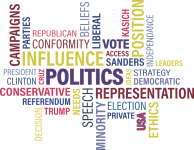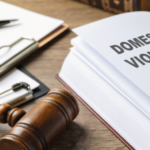What Happens When Individuals Commit Election Fraud?

Election fraud is a criminal offence that can have serious repercussions.
When most people think about election fraud, they think about it in terms of political parties who fraudulently seek to obtain more votes than they are eligible for.
You may not be aware, but election fraud can also apply to individuals, as has been demonstrated in recent allegations of voter fraud concerning the federal seat of Indi in south-east Victoria.
The Australian Electoral Commission investigated claims of voter fraud which arose after Independent candidate Cathy McGowan won the seat of Indi from Liberal MP Sophie Mirabella by a narrow margin of just 439 votes in last year’s federal election.
It was alleged that a number of voters falsified their voting address so they could vote for Cathy McGowan, even though they actually resided outside of the constituency.
The Commission found a number of federal electoral laws may have been breached, and referred the matter to the Australian Federal Police.
Election fraud is a crime under the Commonwealth Electoral Act 1918.
Under this Act there are a large number of electoral offences with varying penalties.
Some of the most common include:
- Unlawful signing of enrolment or electoral papers.
- Making false or misleading statements on electoral papers.
- Forging of enrolment or electoral papers.
- Unlawfully witnessing electoral or enrolment papers.
There are also a number of specific fraudulent voting offences listed under the Act which include:
- Impersonating another person for the purposes of getting a ballot paper.
- Voting multiple times in the same election
If you are found guilty of an electoral offence, you could face anything from a fine to a maximum ten-year prison sentence, depending on the nature and severity of the offence.
There have been a number of incidents of voter fraud in the past few years.
As well as the current allegations being investigated by the Australia Federal Police and the Electoral Commission, the Australian voting system has been widely criticised for its lack of security and in-depth verification of voters’ credentials.
What safeguards are in place to prevent voter fraud?
The Electoral Commission has very few measures in place to reduce the chances of voter fraud.
Unfortunately, this means that the system is open to exploitation and there are a few gaps which could make it easier for fraudulent voters to escape undetected.
However, the incidence of voter fraud is considered to be very low.
For example, figures from a report published earlier this year show that between 1993 and 2010, 6,739 people admitted to multiple voting, a type of election fraud, with just 68 cases being referred to the Commonwealth Director of Public Prosecutions after investigation by the Commission and Federal Police.
Currently the system relies on trust, with voters presenting themselves at polling stations and providing their name to electoral officers who then mark their details off on the electoral roll.
There is currently no specific legal requirement to provide documentary evidence or identification to prove who you are, which can make it easy for people to impersonate others or vote at multiple places.
The system itself is laborious and time consuming, as it involves counting physical ballot papers and results can take hours to compile.
There have been a number of incidents of ballot papers getting lost and rediscovered or counting errors, which have had serious implications on the results and have even led to changes in the winning candidates.
With some seats being won on a narrow margin, a few votes here and there can make a big difference.
Can security be tightened?
Suggestions to tighten up security include legally require voters to provide identification in order to vote, and the implementation of an electronic voting system.
Those who are against this say that having to provide identification would disadvantage those who might not have a driver’s licence or other form of identification, in particular Aboriginal members of the community.
In the latest case of suspected election fraud, the voters who are under investigation in Indi were alleged to have falsified their addresses so they could vote for Cathy McGowan when they really lived in different electorates.
It has been suggested that members of grassroots support group Voice for Indi were encouraging voters who lived in other electorates to enrol in the seat.
Currently 27 voters are under investigation by the Australian Federal Police for potential electoral fraud.






